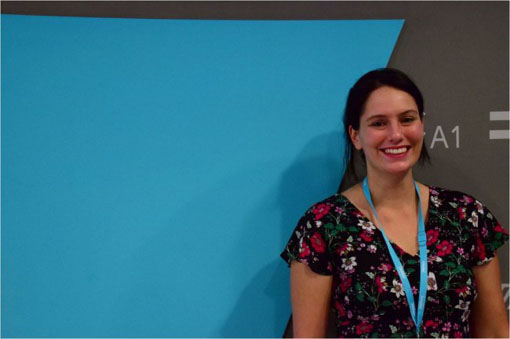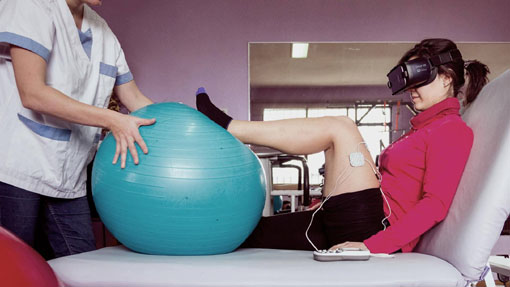Today I would like to talk to you about a very important scientific discovery, to improve the health of people.
A pioneering rehabilitation technique, that uses glasses of Virtual Reality (VR), allows "to deceive the brain" and thus accelerate the recovery of patients, with motor injuries, to recover the movement, explained the doctor in neurocontrol motor Charo Ortín, in an interview with Efe.

The Virtual Reality glasses

Dr. Charo Ortín
This method is based on neurovirtuality, the term with which the expert defines "the influence of VR, on the plastic mechanisms of neurons" and how she is able to convince it that what the patient's eyes are seeing is his own reality.
Ortín applies this technique, in the Madrid center FOREN (Training and Neurological Rehabilitation), where she claims to have treated "successfully" already to about forty patients, after three previous years of theoretical study.
During that period "I discovered the key role of mirror neurons, so-called because they mimic the movement or emotion of the person, in front of us" and an example whose operation is the "contagion" of yawning.
These neurons can also be applied to the rehabilitation of patients, through an RV training, that "tricks" the brain, so that the brain believes that the hand or foot move itself, according to its orders, thus avoiding negative plasticity.
A patient, who has been injured, "still knows how to move a hand or a foot, but his neural connections are weak" and therefore the mandate, that he sends to the brain, "does not obtain result, since the plasticity of the neurons, ie, their capacity to learn or unlearn something, has become negative", said this specialist.
The FOREN method works, in such a way that, when the patient tries to move his injured limb, he receives a response from his therapist --by electrostimulation, vibration or temperature--, while watching, through the glasses, a video, in which that limb really moves itself.


A patient (a young woman) in rehabilitation with the Virtual Reality glasses
Although it is not her own, her brain believes that it is thanks to "a perfect congruence and synchrony", through which the patient is convinced that she is who realises the movement. "This raises his motivation and joy" and contributes up to "90% of the treatment" to progressively improve the recovery.
With a daily training and thanks to a successful repetition, the nervous system relearn to move, reinforcing the connections between neurons and "plasticity becomes positive", summarises Ortín.
However, not all people can be subjected to this treatment because, according to this expert, it is necessary "imitation ability" --that is, their mirror neuron system is intact-- and "willingness to be deceived, because of deception of the brain is the basis of this technique".
Although each patient needs a different time to create "solid" junctions, in their neurons on a repetition basis, "we have done studies where we notice sensory, motor changes or in the plasticity of neurons, after working a month and a half, for four days at a week".
Ortín and her team are currently exploring the application of such treatments, in other diseases, such as autism or senile dementia, for which they would also use increased reality. "It will be a very powerful project that, in the early stages of the disease, could alleviate much suffering and resources to the patient", she claimed.
In her opinion, RV technology is at a time of boom and "maximum revolution", so "it should shake hands with medicine and move forward together", because of the possibilities for development and learning are "enormous".
Ortín added that her challenge is "very lively" and "open" to all and what she needs mainly, at the moment, is funding, because "we need resources, to grow, and any help is little".
Well, I hope that you have liked this news.
Until my next post, kind regards,
Luis.
Sponsored by Costaluz Lawyers.
Please click below:
